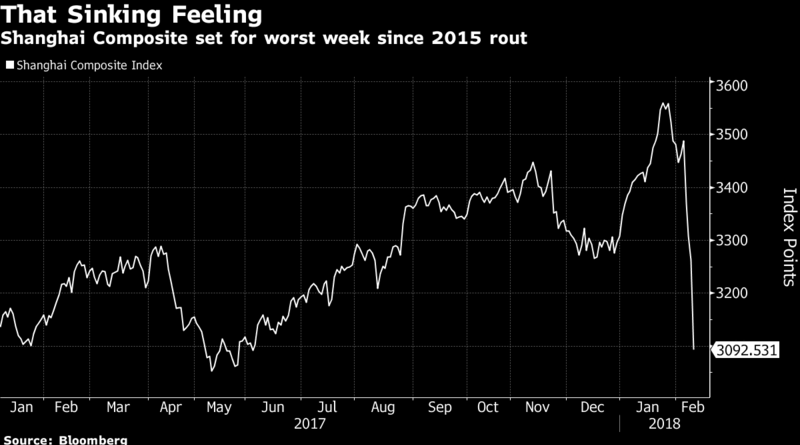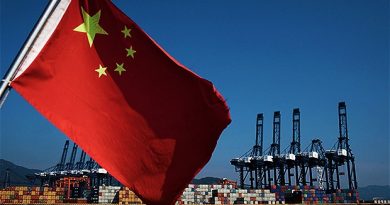Introduction
Invest.lk News (Pvt) Ltd [PV 79036] (herein after referred to as “the Company”) provides you, its services via its website (herein after referred to as “Website”) under the following conditions.
Please read the following terms carefully. If you do not agree to the following Terms & Conditions you may not use this Website. If you continue to browse and use this Website you are agreeing to comply with and be bound by the following Terms and Conditions of use, which together with our privacy policy governs the Website and its use by you.
- Information on the Website
While every effort is made to update the information contained on this Website, neither the Company nor any third party or data or content provider make any representations or warranties, whether express, implied in law or residual, as to the sequence, accuracy, completeness or reliability of information, opinions, any pricing information, research information, data and/or content contained on the Website (including but not limited to any information which may be provided by any third party or data or content providers) and shall not be bound in any manner by any information contained on the Website. The Company reserves the right at any time to change or discontinue without notice, any aspect or feature of this Website. No information shall be construed as advice and information is offered for information purposes only and is not intended for trading purposes. You and your company rely on the information contained on this Website at your own risk. If you find an error or omission at this site, please let us know.
- Trade Marks
The trade marks, names, logos and service marks (collectively “trademarks”) displayed on this Website are all registered and unregistered trademarks of the Company. Nothing contained on this Website should be construed as granting any license or right to use any trade mark without the prior written permission of the Company.
- External Links
Where content is from external websites we will indicate the source and/or provide external links. Theses external links are beyond the control of the Company and no representation is made as to their content. Use or reliance on any external links and the content thereon provided is at your own risk. When visiting external links you must refer to the terms and conditions of use for that external website. No hypertext links shall be created from any website controlled by you or otherwise to this Website without the express prior written permission of the the Company. Please contact us if you would like to link to this Website or would like to request a link to your website.
- Public Forums and User Submissions
The Company is not responsible for any material submitted to the public areas by you (which include Classifieds Ads, or any other public area found on the Website. Any material (whether submitted by you or any other user) is not endorsed, reviewed or approved by the Company. The Company reserves the right to remove any material submitted or posted by you in the public areas, without notice to you, if it becomes aware and determines, in its sole and absolute discretion that you are or there is the likelihood that you may, including but not limited to
- defame, abuse, harass, stalk, threaten or otherwise violate the rights of other users or any third parties;
- publish, post, distribute or disseminate any defamatory, obscene, indecent or unlawful material or information;
- post or upload files that contain viruses, corrupted files or any other similar software or programs that may damage the operation of the Company and/or a third party computer system and/or network;
- violate any copyright, trade mark, other applicable laws in Sri Lanka or international or intellectual property rights of the Company or any other third party;
- submit content containing marketing or promotional material which is intended to solicit business.
- Membership
This Website is not available to users under the age of 18, outside the demographic target, or to any members previously banned by the Company. By using this Website, you acknowledge that you are of legal age to form a binding contract and are not a person barred from receiving services under the laws of Sri Lanka or other applicable jurisdiction. You agree to provide true and accurate information about yourself when requested by this Website. If you provide any information that is untrue, inaccurate, or incomplete, the Company has the right to suspend or terminate your ad and refuse future use of its services.
- Cancellation Due To Errors
The Company has the right to cancel a transaction at anytime due to typographical or unforeseen errors that results in the product(s)/service(s) on the site being listed inaccurately (having the wrong price or descriptions etc.). In the event a cancellation occurs and payment for the product(s)/service(s) has been received, the Comapny shall issue a full refund for the product / service in the amount in question. Additionally, you can cancel your transaction during the processing phase.
- Specific Use
You further agree not to use the Website to send or post any message or material that is unlawful, harassing, defamatory, abusive, indecent, threatening, harmful, vulgar, obscene, sexually orientated, racially offensive, profane, pornographic or violates any applicable law and you hereby indemnify the Company against any loss, liability, damage or expense of whatever nature which the Company or any third party may suffer which is caused by or attributable to, whether directly or indirectly, your use of the Website to send or post any such message or material.
- Warranties
The Company makes no warranties, representations, statements or guarantees (whether express, implied in law or residual) regarding the Website, the information contained on the Website, you or your personal information or material and information transmitted over our system.
- Disclaimer of Liability
The Company shall not be responsible for and disclaims all liability for any loss, liability, damage (whether direct, indirect or consequential), personal injury or expense of any nature whatsoever which may be suffered by you or any third party (including your company). due to a result of or which may be attributable, directly or indirectly, to your access and use of the Website, any information contained on the Website, you or your classified Ad’s information or material and information transmitted over our system. In particular, neither the Company nor any third party or data or content provider shall be liable in any way to you or to any other person, firm or corporation whatsoever for any loss, liability, damage (whether direct or consequential), personal injury or expense of any nature whatsoever arising from any delays, inaccuracies, errors in, or omission of any share price information or the transmission thereof, or for any actions taken in reliance thereon or occasioned thereby or by reason of non-performance or interruption, or termination thereof.
- Indemnity
The user agrees to indemnify and not hold the Company (and its employees, directors, suppliers, subsidiaries, joint ventures, and legal partners) to negligence or wrongful conduct from any claim or demand, including reasonable attorneys’ fees from and against all losses, expenses, damages and costs resulting from any violation of these terms and conditions or any activity related to classified advertisement material and information.
- Use of the Website
The Company does not make any warranty or representation that information on the Website is appropriate for use in any jurisdiction (Democratic Socialist Republic of Sri Lanka). By accessing the Website, you warrant and represent to the Company that you are legally entitled to do so and to make use of information made available via the Website.
- General
- Entire Agreemen:. These Website terms and conditions constitute the sole record of the agreement between you and the Company in relation to your use of the Website. Neither you nor the Company shall be bound by any expressed or implied representation, warranty, or promise not recorded herein. Unless otherwise specifically stated, these Website terms and conditions supersede and replace all prior commitments, undertakings or representations, whether written or oral, between you and the Company in respect of your use of the Website.
- Alteratio:. the Company may at any time modify any relevant terms and conditions, policies or notices. You acknowledge that by visiting the Website from time to time, you shall become bound to the current version of the relevant terms and conditions (the “current version”) and, unless stated in the current version, all previous versions shall be superseded by the current version. You shall be responsible for reviewing the current version each time you visit the Website.
- Conflict: Where any conflict or contradiction appears between the provisions of these Website terms and conditions and any other relevant terms and conditions, policies or notices, the other relevant terms and conditions, policies or notices which relate specifically to a particular section or module of the Website shall prevail in respect of your use of the relevant section or module of the Website.
- Cession: The Company shall be entitled to cede, assign and delegate all or any of its rights and obligations in terms of any relevant terms and conditions, policies and notices to any third party.
- Severability: All provisions of any relevant terms and conditions, policies and notices are, notwithstanding the manner in which they have been grouped together or linked grammatically, severable from each other. Any provision of any relevant terms and conditions, policies and notices, which is or becomes unenforceable in any jurisdiction, whether due to void, invalidity, illegality, unlawfulness or for any reason whatever, shall, in such jurisdiction only and only to the extent that it is so unenforceable, be treated as pro non-script and the remaining provisions of any relevant terms and conditions, policies and notices shall remain in full force and effect.
- Applicable laws: Any relevant terms and conditions, policies and notices shall be governed by and construed in accordance with the laws of Sri Lanka without giving effect to any principles of conflict of law. You hereby consent to the exclusive jurisdiction of the Court of law of the Democratic Socialist Republic of Sri Lanka in respect of any disputes arising in connection with the Website, or any relevant terms and conditions, policies and notices or any matter related to or in connection therewith.
- Comments or Questions: If you have any questions, comments or concerns arising from the Website, the privacy policy or any other relevant terms and conditions, policies and notices or the way in which we are handling your personal information please contact us.
- Termination
These terms and conditions are applicable to you upon your accessing the Website and/or booking and posting an Ad online. These terms and conditions, or any of them, may be modified or terminated by the Company without notice at any time for any reason. The provisions relating to Copyrights and Trademarks, Disclaimer, Claims, Limitation of Liability, Indemnification, Applicable Laws, Arbitration and General, shall survive any termination.
 The big question is whether stocks are now signaling trouble ahead for the world’s second-largest economy. Most analysts are still sanguine, with the consensus estimate holding steady at 6.5 percent growth for 2018. Optimists point to the corporate bond market’s relative resilience over the past two weeks and a yuan that still trades near its strongest in two years against the dollar, despite losing some ground in recent days. Investors aren’t yet showing signs of 2015-style panic.
The big question is whether stocks are now signaling trouble ahead for the world’s second-largest economy. Most analysts are still sanguine, with the consensus estimate holding steady at 6.5 percent growth for 2018. Optimists point to the corporate bond market’s relative resilience over the past two weeks and a yuan that still trades near its strongest in two years against the dollar, despite losing some ground in recent days. Investors aren’t yet showing signs of 2015-style panic.



